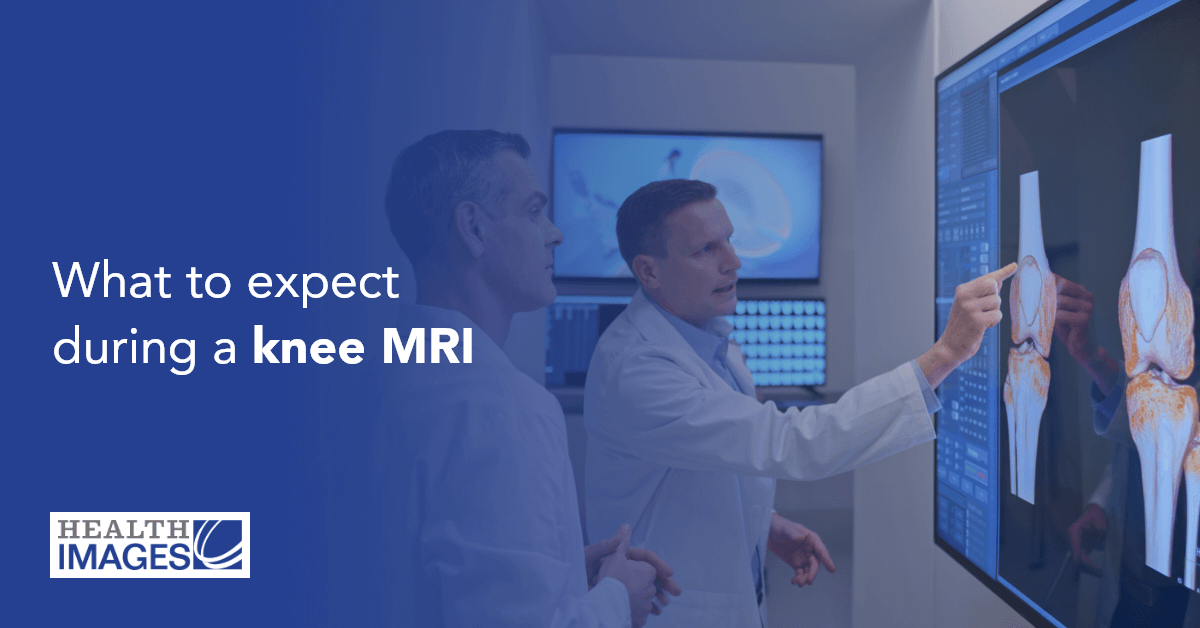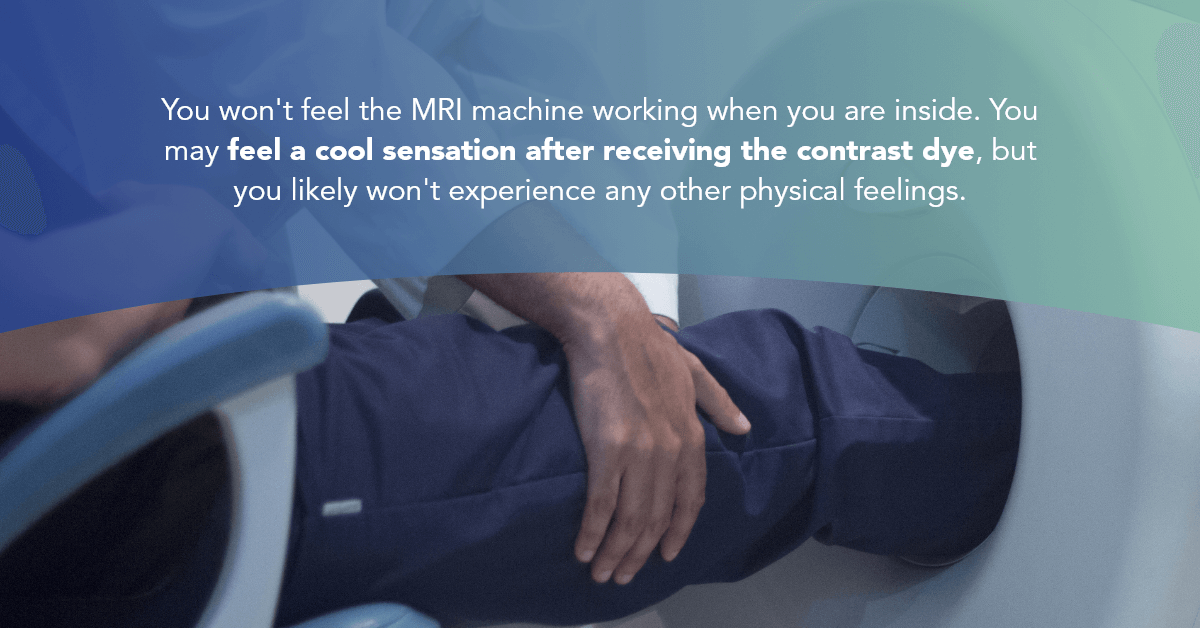What to Expect During a Knee MRI
Your knees bear a lot of weight throughout the day, supporting you as you move around, sit down, get up and otherwise adjust your body. As you age or experience injuries, it’s common to experience pain that impacts your routine. If you’re experiencing knee pain, it’s best to schedule an appointment as soon as possible to understand the problem.
Knee pain is a common health concern for many people. This pain can impact your daily life and make walking, standing, exercising or lifting items difficult. Throughout your life, your knee experiences wear and tear that can make everyday activities a challenge. Many knee injuries are treatable, but you have to know the causes before you can begin treatment.
A knee MRI will provide comprehensive information about your knee by taking clear pictures that identify the problem. Here’s everything you need to know about a knee MRI, including what to expect, what it shows and the perceived risks.
What is an MRI?
Magnetic resonance imaging (MRI) machines use computer-generated radio waves and a magnetic field to form detailed pictures of your organs and body tissue. These machines are tube-like and will collect multiple images of infected or injured areas so your provider can evaluate damage and problems without making incisions. The results can provide information regarding blood vessels, bones, cartilage, muscles, ligaments and tendons. A knee MRI will show your knee and its surrounding areas.
What does a knee MRI show?
The MRI machine will take extensive images of your knee and the surrounding areas. The images will consist of your muscles, tissues and knee joint. Unlike an x-ray, which will only show your bones, an MRI can provide pictures of many other elements of your body.
The problems you experience in your knee could be due to a wide range of factors, and the MRI machine will gather comprehensive information about the situation. The following issues could result in needing a knee MRI:
- Degenerative disorders like arthritis
- Tumors
- Bone fractures
- Trauma-related injuries
- Sport-related injuries
- Damaged meniscus, tendons, cartilage or ligaments
- Issues with medical device implants
- Reduced knee joint motion
- Infection
- Fluid buildup
The images from the MRI machine will show any and all of these issues. Whether you have a single pain point to address or a combination of several issues, your MRI images will present clear pictures of the problem. The technologist and your provider will be able to determine the cause of your knee issue and administer effective treatment to address and improve it.
What to expect during a knee MRI
Before your exam, you will change into a hospital gown and remove all piercings and jewelry. If your provider uses contract dye, they will inject it into your bloodstream through an IV in your arm.
You will lie on your back on a padded table to slide in and out of the machine. You may need straps or a pillow under your knee to keep your body still and to allow the machine to take clear pictures of the area.
You will enter the machine feet first, and the technologist will tell you to hold your breath for short periods and when to release. You may hear loud noises as the machine works, but you won’t feel the process. After the technologist obtains the necessary images, you will come out of the machine and change into your regular clothes.
What does a knee MRI feel like?
You won’t feel the MRI machine working when you are inside. You may feel a cool sensation after receiving the contrast dye, but you likely won’t experience any other physical feelings. As the machine works, you will probably hear humming, thudding or whirring noises. The technologist may provide headphones that play music to diminish the sound and make you more comfortable.
How long does a knee MRI take?
An MRI doesn’t take very long. These exams typically take 30 to 60 minutes. Your exam may take longer, depending on the extent of your injuries and how clear the images are on the machine. You won’t need to do anything while the machine works other than occasionally holding your breath.
Does your whole body go in for a knee MRI?
Only your lower body will enter the MRI machine for your knee exam. Your upper body will remain outside the machine, as the technologist will not need these images. You will need to stay as still as possible to allow the machine to take the clearest pictures.
What are the risks of a knee MRI?
MRI machines do not use radiation, unlike CT scans or x-rays. This generally makes these machines much safer for everyone, especially pregnant women and children. However, there are some risks for people with metal implants or allergies.
MRI machines use magnets, which can affect the function of pacemakers and implanted screws or pins. It is possible that these objects could shift in your body as the MRI machine works.
Some people may have an allergic reaction to the contrast dye. Although these reactions are typically mild, you could experience itchy eyes or hives due to your exam. Other dyes with iron, such as those in some tattoos, could also heat up during an MRI scan, resulting in itchy skin or an uncomfortable feeling. Some cosmetics can distort MRI images, so be sure your technologist is aware of any potential problems that could arise.
Furthermore, it is possible to experience claustrophobia during MRI exams. The MRI machine is an enclosed, tight space. Although your upper body will remain outside the machine, those with extreme claustrophobia may become uncomfortable with the process. Speak with your provider about your options if you experience this condition to find the best solution for you. This could mean taking a sedative to help calm you during the exam or using an “open” MRI machine that doesn’t require you to be enclosed.
Schedule an appointment with Health Images for your knee MRI
Health Images provides cutting-edge services while delivering care, convenience and compassion. Our efficient service and consistent results are empowering us to revolutionize the field of radiology. We prioritize your well-being and health and are committed to providing unparalleled quality.
If you need an MRI, we understand that you might have some questions and concerns. As soon as you walk through the doors, our friendly team is ready to answer your questions and put your mind at ease. We use the most accurate and latest technology to diagnose potential issues quickly.
We also strive to deliver same-day results whenever possible to ensure you get the answers you need as soon as possible. We understand the importance of quick service and comfortable care, and we want to help you get back on your feet. Request a knee MRI with us, and experience the Health Images difference.






